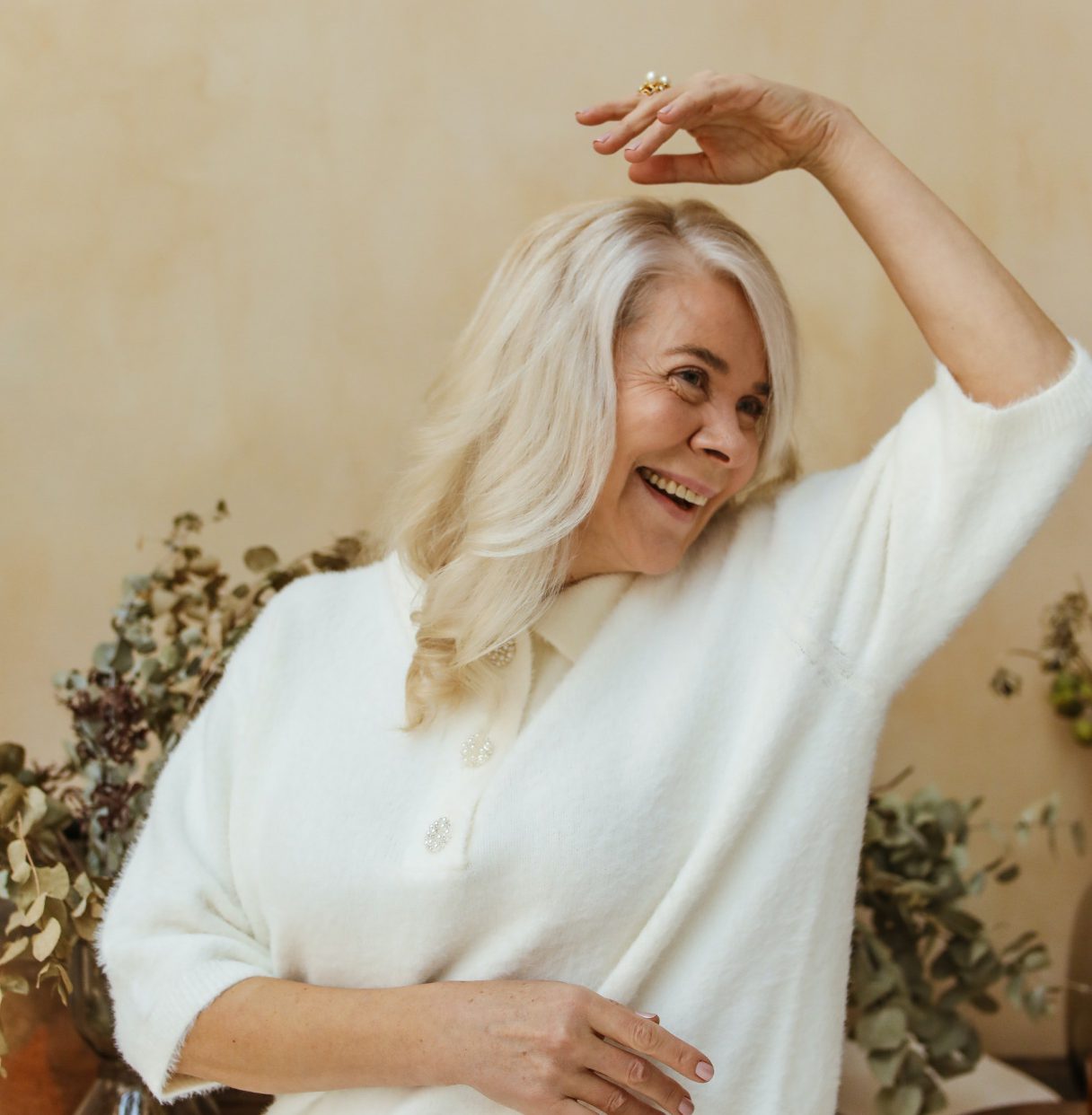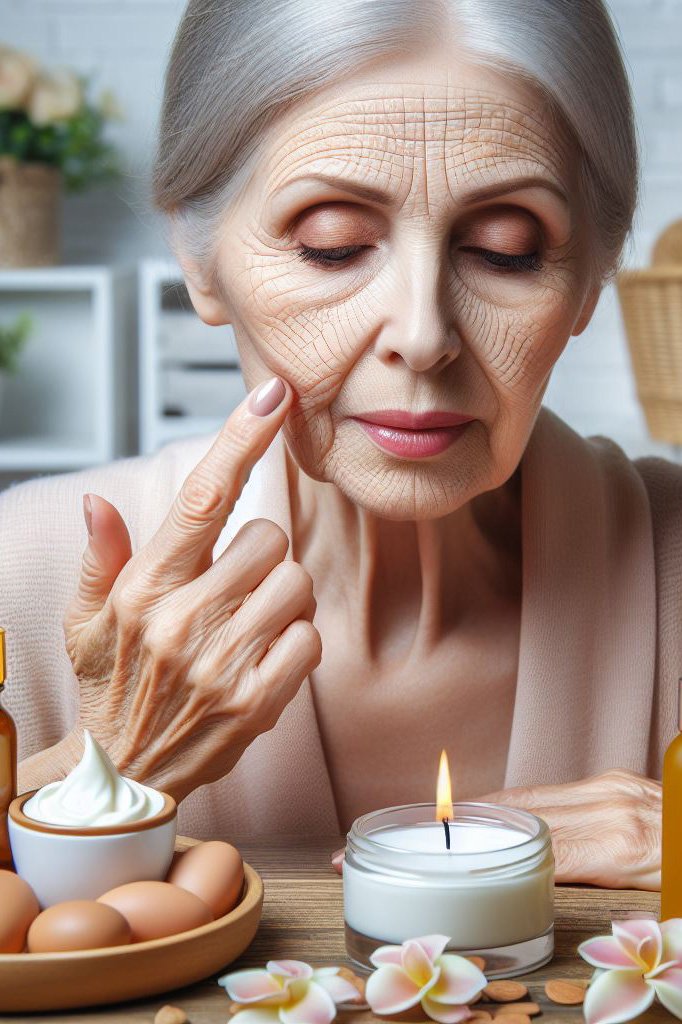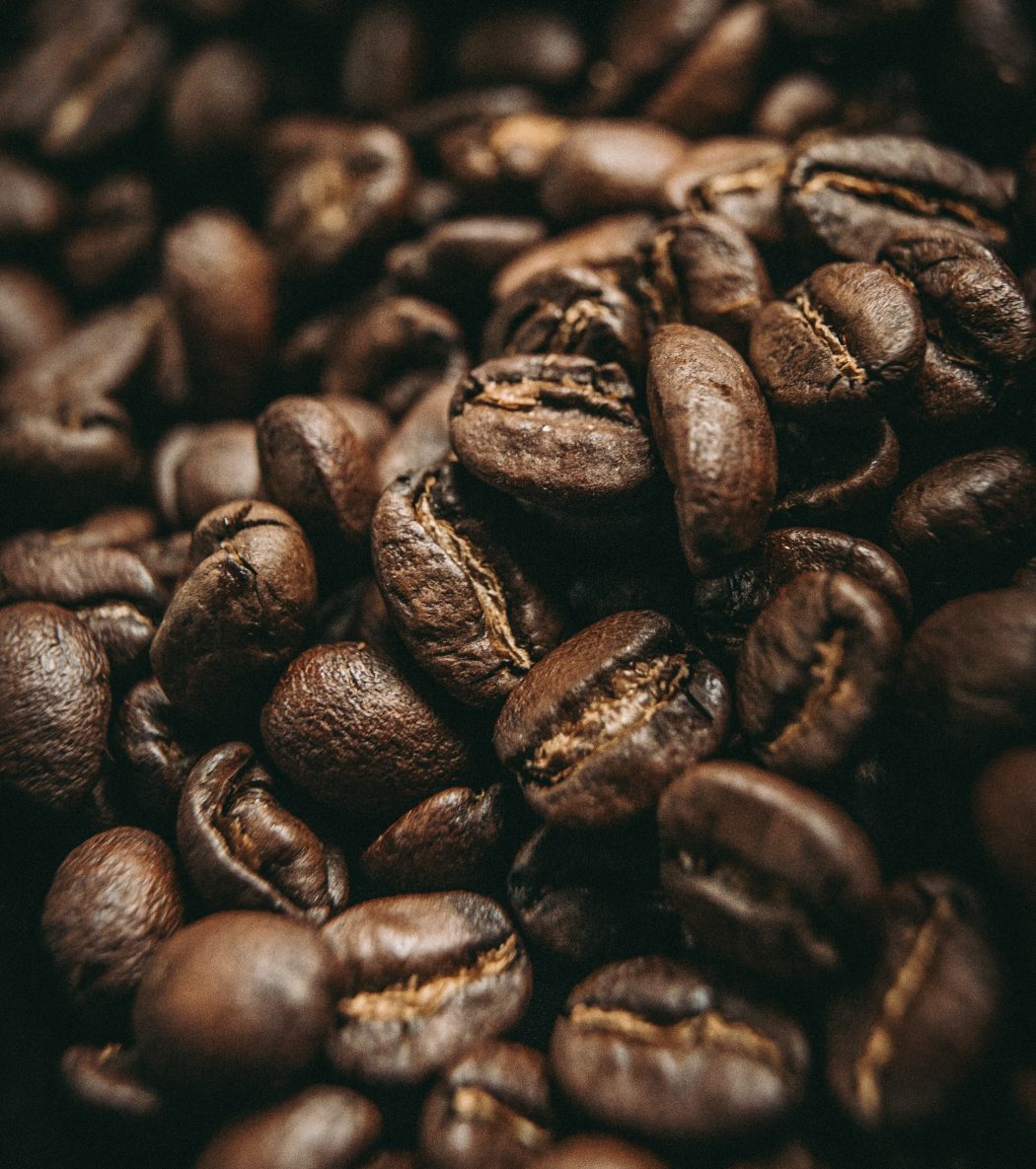The skin is the largest organ in the human body, and, like any organ, it undergoes changes with age. Skin ageing is a natural process that affects us all, which can be accelerated by various factors, such as sun exposure, smoking, diet, stress and pollution. Fortunately, it is also possible to slow down this skin ageing process and reduce the appearance of the signs of ageing by adopting a healthy lifestyle and using suitable products.
The causes of skin ageing
Before you can prevent or slow down the ageing of your skin, it is important to know the causes and understand how your skin works to take care of it. We explain it all to you!
Skin elasticity is the ability of the skin to return to its original shape after being stretched or pinched. This elasticity is due to the elastin and collagen fibers present in the skin. However, as we age, our bodies produce fewer of these fibers and those that remain are less organized. As a result, the skin loses its elasticity and becomes thinner and more fragile. Sun exposure, pollution, smoking and poor diet can also accelerate the process of skin elasticity loss.
If you want to slow down this natural process, it is therefore important to take care of your skin by using moisturizing products, and by adopting a healthy lifestyle.
Sun exposure
Sun exposure is the main cause of premature skin ageing. Of course, no more hours of unprotected sun exposure. When our skin is exposed to UV rays, they penetrate the deep layers of the skin and damage the elastin and collagen fibers, which are essential for maintaining the skin’s suppleness and elasticity. Over time, this repeated exposure to the sun can cause the elastin and collagen fibers to break down, resulting in a loss of skin elasticity. This manifests itself in the appearance of wrinkles, fine lines and sagging of the skin.
In addition, sun exposure can also cause the production of free radicals, which are unstable molecules that damage skin cells. Free radicals also accelerate the breakdown of collagen and elastin, leading to a loss of skin elasticity.
Smoking
Smoking is known to cause many health problems, including lung and cardiovascular disease, but it can also have negative effects on the skin, particularly on the face.
Smoking can affect the skin in several ways, including reducing blood flow, increasing the production of free radicals, and damaging the skin’s elastin and collagen fibers. All these factors can lead to loss of elasticity, wrinkles, uneven pigmentation, and a dull complexion. This is because by reducing blood flow, the skin is deprived of the nutrients and oxygen it needs to stay healthy. The health benefits of quitting smoking are therefore also reflected in the skin, with improved skin texture, color, and elasticity.
Stress
Stress is a normal and natural response of the body to difficult or dangerous situations. However, chronic stress can disrupt the body’s hormonal balance and have negative effects on your skin.
When the body is under chronic stress, it releases stress hormones such as cortisol and adrenaline. These hormones can disrupt the body’s natural hormonal balance, particularly the production of hormones such as estrogen and testosterone.
- Estrogen is an important hormone for maintaining healthy, youthful skin. It stimulates the production of collagen, a protein that keeps the skin firm and elastic. A decrease in estrogen production can therefore lead to a decrease in collagen production and a loss of skin elasticity.
- Testosterone is another important hormone for skin health. It helps regulate the production of sebum, an oily substance that moisturizes and protects the skin. An increase in sebum production can lead to oily, acne-prone skin.
In addition, stress can also affect the quality of your sleep, which is essential for the regeneration and repair of your skin during the night. Quality sleep reduces cortisol levels in the body, which promotes collagen production and maintains skin health.
Relaxation techniques such as meditation, yoga or deep breathing can help you reduce your stress levels. Good nutrition, quality sleep and regular exercise are also important to maintain the body’s hormonal balance and skin health.
Food
Foods high in sugar, such as sweets, sweetened drinks, and pastries, have a high glycemic index, which means that they are quickly absorbed into the bloodstream and cause a rapid rise in blood sugar levels.
When blood sugar levels are high, the body produces molecules called AGEs (Advanced Glycation End-products). These molecules bind to collagen and elastin fibers in the skin, causing a chemical reaction called glycation.
Glycation damages collagen and elastin fibers, which are responsible for the skin’s firmness and elasticity. This can lead to a loss of firmness and suppleness, as well as wrinkles and fine lines.
In addition, glycation can also damage the skin’s blood vessels, reducing blood flow and the skin’s ability to regenerate and repair itself.
To prevent the negative effects of sugar-rich foods on the skin, it is recommended to limit their consumption and promote a balanced and varied diet rich in fresh fruits and vegetables, lean proteins, and healthy fats.
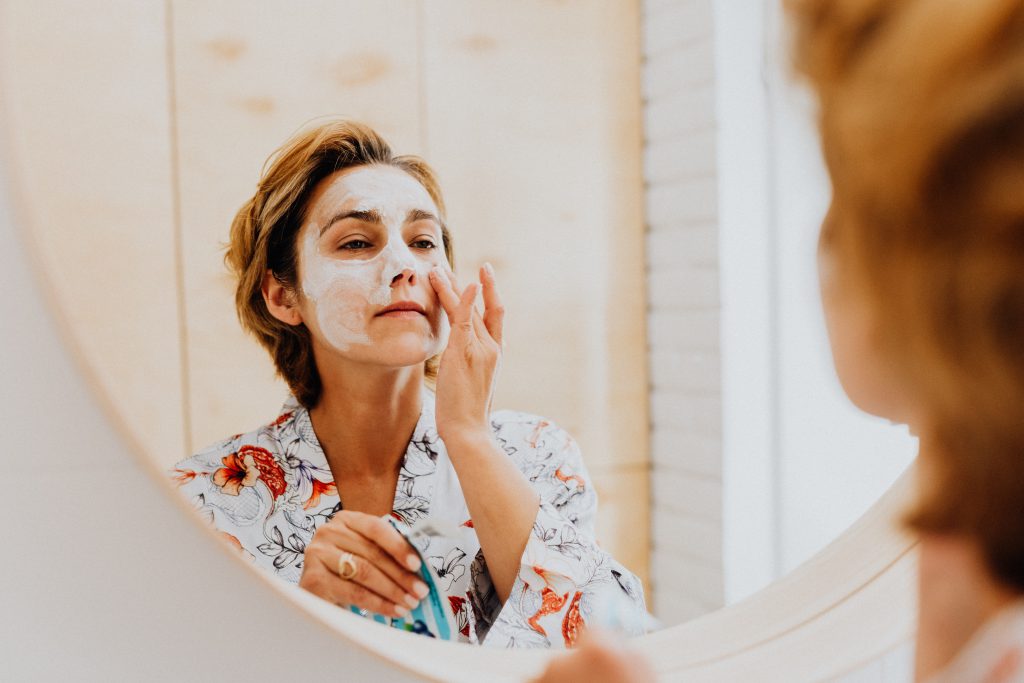
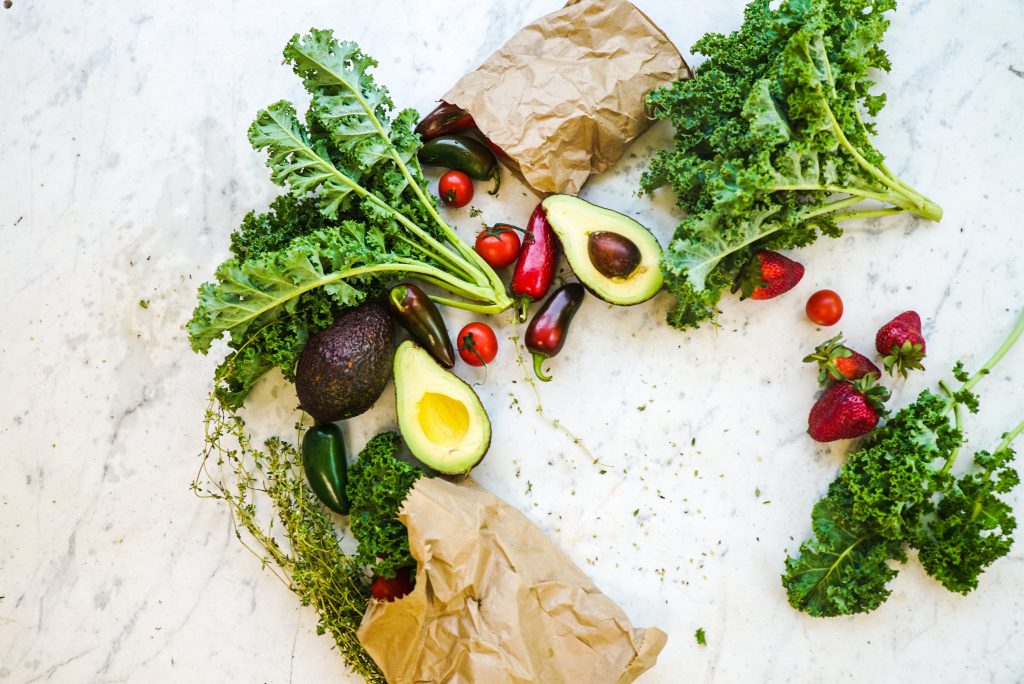
Natural treatments for skin ageing
Now that you know the factors that can accelerate the ageing of your skin, we’ll give you our tips for preventing these effects and pampering your skin.
Protect yourself from the sun
It can’t be said often enough that the sun is one of the main causes of premature skin ageing. Sun damage accumulates over time, which means that every time you go out in the sun without protection, you increase your risk of permanent damage. Sunscreen should be your best friend to prevent UV damage to your skin and your health. So, use a sunscreen with an SPF of at least 30 for optimal protection. You can also find creams adapted to your face, with more natural ingredients and less polluting for the environment. Remember, UV rays can pass through clouds, so even on cloudy days it’s important to use sunscreen to protect your skin.
In short, sunscreen is essential to prevent damage from the sun’s UV rays. Using sunscreen with an appropriate SPF, wearing protective clothing, and avoiding direct sun exposure during the hottest part of the day can help slow down skin ageing and reduce the risk of skin cancer. Take care of your skin by protecting it from the sun to keep it healthy, youthful, and radiant.
In addition to incorporating these anti-wrinkle foods into your diet, it is important to drink enough water to keep the skin hydrated. Also avoid processed foods and refined sugars, which can cause inflammation and accelerate skin aging.
Anti-wrinkle diet, how to nourish your skin from within
Did you know that your diet can play an important role in the health of your skin? Well, yes, a balanced, nutrient-rich diet can help prevent the aging of your skin and reduce the appearance of wrinkles. We have selected some foods to include in your diet to nourish your skin:
- Fruits and vegetables: Fruits and vegetables contain antioxidants that help protect your skin from free radicals, which can cause cell damage and accelerate skin aging. Foods rich in vitamin C such as oranges, kiwi fruit, peppers and broccoli can help stimulate the production of collagen, an important protein for your skin’s health.
- Foods rich in omega-3 fatty acids: Omega-3 fatty acids are essential fatty acids that help keep your skin moisturized and prevent dry skin. Omega-3 rich foods include oily fish such as salmon, mackerel, and sardines, but also walnuts, chia seeds and flax seeds.
- Foods rich in beta-carotene: Beta-carotene is an antioxidant that is converted to vitamin A in the body. This vitamin is essential for skin health as it stimulates collagen production. Carrots, sweet potatoes, and mangoes are excellent sources of beta-carotene.
- Foods rich in antioxidants: Antioxidants, such as polyphenols and flavonoids, protect the skin from free radical damage. You can find them in green tea, cocoa, and berries.
In addition to incorporating these anti-wrinkle foods into your diet, it is important to drink enough water to keep your skin hydrated. Also avoid processed foods and refined sugars, which can cause inflammation and accelerate skin aging.
Facial exercise
Facial exercise is a practice that aims to strengthen the muscles of the face. It can be considered an exercise for the face, just as exercise is important for strengthening the muscles of the body. Facials stimulate blood and lymph circulation in the face, which can improve the texture of the skin and give it a more radiant and youthful appearance. In addition, it can help you improve the firmness of your skin and prevent the loss of elasticity that naturally occurs with age.
Here are some examples of simple but effective exercises you can do daily:
- Forced smile: smile exaggeratedly for several seconds and then relax your facial muscles. Repeat this exercise several times.
- Reverse frown: Frown by pushing your eyebrows down rather than up. Hold this position for a few seconds, then release.
- Fish: suck in your cheeks and hold for several seconds, then release. Repeat several times.
- Eyebrow raise: Raise your eyebrows as high as you can while keeping your eyes open. Hold this position for a few seconds, then release.
Facials are a good way to prevent wrinkles and other signs of premature aging. However, we remind you that it is important to consult a health care professional before starting any new exercise program, including facials, and to maintain a regular and proper skin care routine to maximize results.
Our homemade anti-wrinkle mask recipes
We’ve got 3 quick and easy recipes for masks you can make at home to nourish and moisturise your skin, while stimulating collagen production to help prevent wrinkles. For best results, you can apply one of these masks twice a week.
- Egg white mask:
Beat an egg white until it becomes frothy.
Add a tablespoon of fresh lemon juice and a tablespoon of honey.
Mix well and apply to the face, avoiding the eye area.
Leave on for 15-20 minutes and then rinse off with warm water. - Banana mask:
Mash a ripe banana to a smooth purée.
Add a tablespoon of honey and a tablespoon of plain yoghurt.
Mix well and apply to the face, avoiding the eye area.
Leave on for 15-20 minutes, then rinse off with warm water. - Avocado mask:
Mash a ripe avocado to a smooth purée.
Add a tablespoon of olive oil and a tablespoon of honey.
Mix well and apply to the face, avoiding the eye area.
Leave on for 15-20 minutes and then rinse off with warm water.
